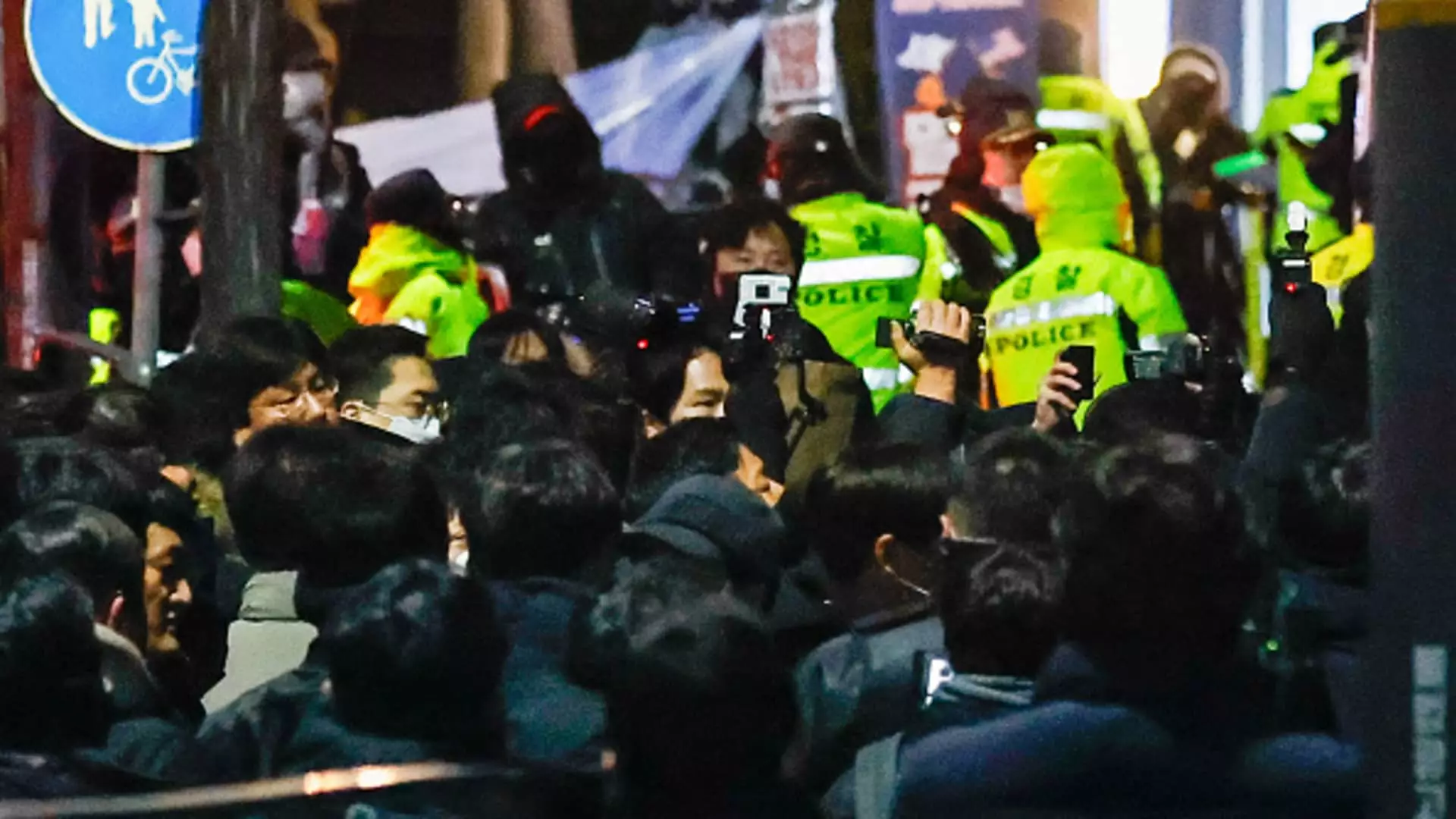In an unprecedented event in South Korea’s political landscape, President Yoon Suk Yeol was recently arrested by the nation’s Corruption Investigation Office for High Ranking Officials (CIO). This marks a significant moment in history, as no sitting South Korean president has ever faced arrest. The implications of such an event raise questions about the integrity and stability of the country’s political system, suggesting a potential shift in public trust and governance standards in a nation that has prided itself on democratic processes.
Failed Attempts and Escalation of Tension
The arrest was not without its complications; it was the second attempt to detain Yoon after an earlier failure on January 3, when security officials obstructed investigators from entering the presidential residence. The second attempt involved an overwhelming force of around 3,000 police officers, highlighting the high-stakes drama surrounding the investigation and the lengths to which the authorities had to go to ensure compliance. Yoon, in a pre-recorded statement, declared the ongoing investigation a violation of legal norms, insisting that “the law of the country has collapsed,” indicating his defiance in the face of legal scrutiny.
The Market’s Tepid Response
While the political situation escalated, market reactions were surprisingly muted. The blue-chip Kospi index saw a slight increase of 0.21%, while the small-cap Kosdaq experienced a decline of 0.44%. These developments suggest that investors may have been anticipating some form of political instability, thus reflecting a more nuanced understanding of the tumult that the nation is experiencing. Moreover, the South Korean won depreciated slightly against the U.S. dollar, further emphasizing the nervousness surrounding the country’s financial prospects amid political chaos.
Charges against Yoon are severe, with allegations of insurrection stemming from an attempted declaration of martial law on December 3, which he justified as necessary for combating “North Korean communist forces” and “antistate forces.” This declaration marked the first such action in over four decades—a bold, controversial move that was voted down by lawmakers in the National Assembly. Yoon’s subsequent impeachment on December 14 led to his suspension, with the Constitutional Court opening impeachment hearings on January 14. However, the proceedings have been stymied by Yoon’s absence from the trial, indicating further turmoil within the political arena.
As this situation continues to unfold, South Korea stands at a pivotal crossroads. The arrest of a sitting president raises critical questions about government accountability and rule of law in a democratic society. Citizens and political analysts alike are watching closely to see how this tumultuous chapter will resolve. Yoon’s refusal to step down in the face of mounting evidence and opposition signals a fierce political battle ahead, suggesting that the culmination of these events may redefine the future of South Korean politics. By navigating this landscape with attention to transparency and justice, the country may emerge from this crisis with a more robust democratic foundation.


Leave a Reply